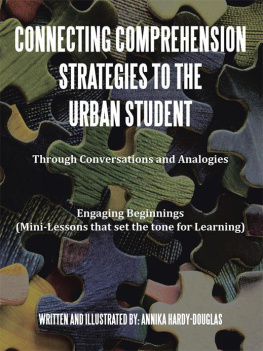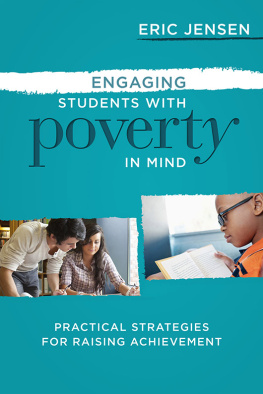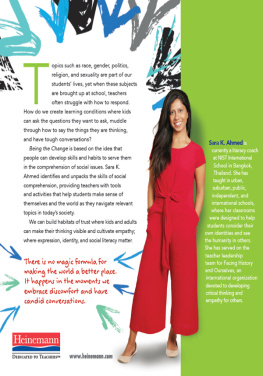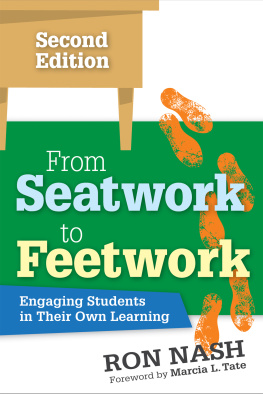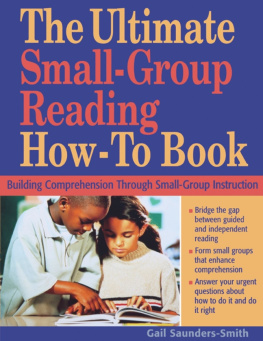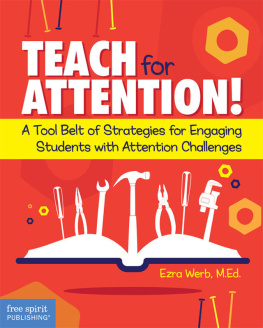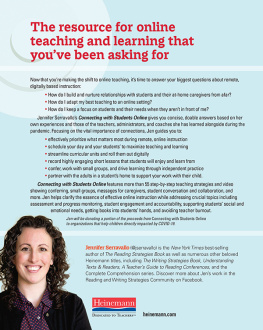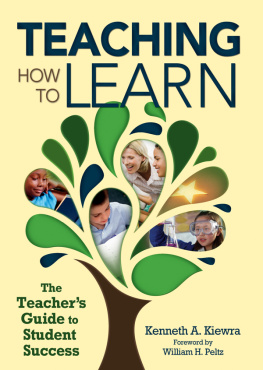Connecting Comprehension
Strategies to the
Urban Student
Through Conversations and Analogies
Engaging Beginnings
(Mini-Lessons that set the tone for Learning)
Annika Hardy-Douglas

AuthorHouse
1663 Liberty Drive
Bloomington, IN 47403
www.authorhouse.com
Phone: 1 (800) 839-8640
2016 Annika Hardy-Douglas. All rights reserved.
No part of this book may be reproduced, stored in a retrieval system, or transmitted by any means without the written permission of the author.
Published by AuthorHouse 04/20/2016
ISBN: 978-1-5246-0424-0 (sc)
ISBN: 978-1-5246-0423-3 (e)
Library of Congress Control Number: 2016906343
Any people depicted in stock imagery provided by Thinkstock are models, and such images are being used for illustrative purposes only.
Certain stock imagery Thinkstock.
Because of the dynamic nature of the Internet, any web addresses or links contained in this book may have changed since publication and may no longer be valid. The views expressed in this work are solely those of the author and do not necessarily reflect the views of the publisher, and the publisher hereby disclaims any responsibility for them.
Contents
Investigative Circle
The idea of the investigative circle mimics the concept of a literature circle. The purpose of the investigative circle is to explore informational text, complex text, and non-fiction text in a more intimate way. Students are expected to conduct several close reads in order to completely understand the reading material. Students will also have individual jobs to complete with the expectation of sharing out in a collaborative setting. |
JOBS Questioner: As the Questioner , your job is to generate questions that can be answered through careful investigation. It is wise to form your questions before you read (Based on the Title) during the reading (Based on what you are thinking) and after you have read (Based on what youre still wondering a bout) Predictor: As the predictor, your job is to closely read the text and periodically stop to think. Make predictions on what you think may happen next, what the next paragraph may be about, or what you think the outcome of an event may be. Write at least 3 predictions with evidence that will support each one. Share your predictions with your group members. Data Collector: As the data collector your job is to accurately record pieces of text that made you want to stop and think, question, reflect, or make logical inferences. Read each piece of text to your group members and discuss why you feel the information/data that you collected is valuable and important for understanding the text. Analyzer: As the analyzer your job is to examine the details of the text very closely. Conduct a close read of the text. You may highlight, underline, annotate, and tag the text as much as possible to gain a strong understanding of what you have read. Write a paragraph that is a conclusion of your thinking. Use evidence from the text to support your conclusion or final analysis. |
Questioner
As the Questioner , your job is to generate questions that can be answered through careful investigation. It is wise to form your questions before you read (Based on the Title) during the reading (Based on what you are thinking) and after you have read (Based on what youre still wondering a bout)
Below are some sample Question Starters:
Who?
Where?
Which one?
What?
How?
Why?
How much?
How many?
When?
What does this mean?
Which are the facts?
Write in your own words
How would you explain ?
Write a brief outline
What do you think could have
happened next?
Who do you think?
What was the main idea ?
Clarify why
Illustrate the
Write at least 5 questions you can share with your group. Discuss possible answers, and use evidence to support your answers.
Predictor
As the predictor, your job is to closely read the text and periodically stop to think. Make predictions on what you think may happen next, what the next paragraph may be about, or what you think the outcome of an event may be. Write at least 3 predictions with evidence that will support each one. Share your predictions with your group members.
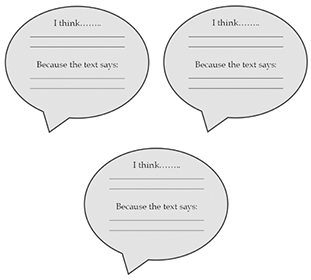
Data Collector
As the data collector your job is to accurately record pieces of text that made you want to stop and think, question, reflect, or make logical inferences. Read each piece of text to your group members and discuss why you feel the information/data that you collected is valuable and important for understanding the text.
Analyzer
As the data collector your job is to accurately record pieces of text that made you want to stop and think, question, reflect, or make logical inferences. Read each piece of text to your group members and discuss why you feel the information/data that you collected is valuable and important for understanding the text.
This book is really a diary of lesson plans. Each lesson plan was created to hook students, to get them interested, and to encourage them to want to continue learning how to think when they read. The outcome of anything you love doing will always be great each and every time. Passion is not only seen, it is felt as well. Children are like sponges that soak up all types of energy. That is why I love them so much. They are not yet flawed by conformity, and in a great classroom environment are allowed to be themselves, to think like they are wired to think, to argue, to debate, to prove their way of thinking by what they feel is true. In my classroom environment children are free to be delicately abrasive with the intent of sharing their minds with others and being heard, but even more important, being accepted.
In order for me to reach my students I have to become a student myself. I have to not conform to what a teacher is supposed to look like, sound like, or act like. I have to be as transparent as I want my students to be with me. Children need to know and understand that you are just as human as they are. You should be comfortable sharing yourself as the imperfect being you are in a non-intimidating way. Students have the right to know that as a teacher you dont have all of the answers to everything, and that each day is a new learning experience for you as well. When children feel welcomed in the classroom they will begin to feel comfortable enough to let down their guard down, or the walls they some students tend to have up. Although, most of the more challenging students would never admit it, they really do want a teacher to care enough to knock their wall down. It truly does take an artist to knock down walls, character build, inspire, motivate, love, care, and teach. This is a job that requires patience, transparency, a will to give, a desire to learn, and a growth mindset. You are a gifted and special person as an educator, because everyone can t do this job well!
I would like to dedicate this book to all of the children I have ever had the pleasure of working with. My son Mekhi and my daughter Mackenzie! I want my children to know how important education is, and how it should be valued at all times. There were fearless people who came before us, stripped of the right to be educated, but they fought for future generations to be able to learn. That is why education is important and is the most powerful tool you can use to achieve greatness in your life. A well-educated mind is a free mind. I would also like to extend this dedication to three powerful principals that have made a positive influence on my teaching abilities. Thank you Jonnie Nelson, Toni Young, and Tammie Bolden. All three of these ladies are phenomenal African-American leaders, mentors, and coaches in the field of education. As a quiet observer I was able to pick up many valuable things to incorporate in my line of work. Through these ladies, my confidence was enhanced, I was encouraged to further myself academically, and more importantly I learned how to think as a professional woman in the field of education. These are jewels that are rarely shared between women and I appreciate them so dearly.
Next page
